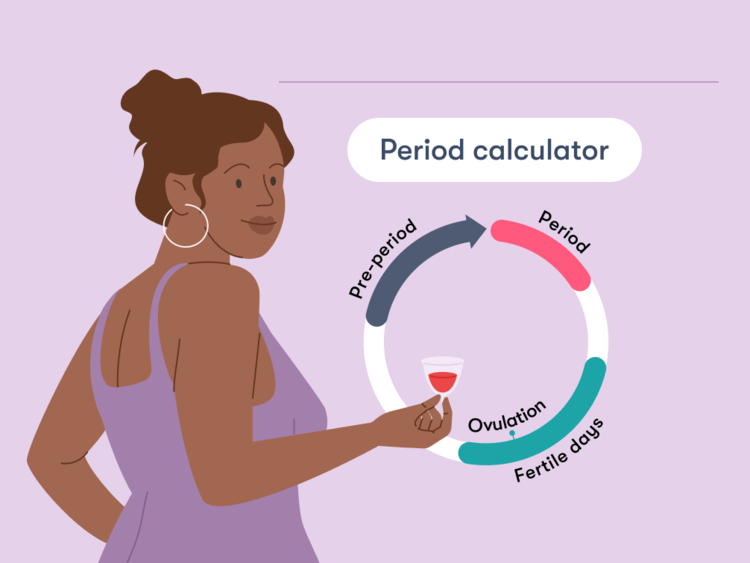
Menstrual health is a crucial aspect of a woman's overall well-being. Understanding menstruation, maintaining menstrual health, and managing menstrual symptoms are essential for every woman. In this article, we will delve into the details of menstrual health, its importance, and practical tips for maintaining it.
Understanding Menstruation
Menstruation, commonly known as a period, is a natural process that occurs in women of reproductive age. It involves the shedding of the uterine lining once a month. The menstrual cycle, on average, lasts about 28 days, but it can vary from woman to woman. It's important to note that irregular periods can be a sign of underlying health issues. Common menstrual problems include dysmenorrhea (painful periods), menorrhagia (heavy periods), and amenorrhea (absence of periods).
Importance of Menstrual Health
Maintaining good menstrual health is vital for a woman's overall well-being. Poor menstrual health can lead to various health issues and impact fertility. A regular menstrual cycle is an indicator of a healthy reproductive system. Hormone balance plays a crucial role in menstrual health, affecting mood, energy levels, and fertility.
Tips for Maintaining Menstrual Health
Stay Hydrated: Drinking an adequate amount of water is essential for overall health and can help alleviate menstrual symptoms.
Eat a Balanced Diet: Consuming a diet rich in fruits, vegetables, whole grains, and lean proteins can support hormone balance and reduce menstrual discomfort.
Exercise Regularly: Physical activity can help regulate menstrual cycles, reduce stress, and improve overall well-being.
Manage Stress Effectively: Stress can disrupt hormone balance and worsen menstrual symptoms. Practicing relaxation techniques like yoga or meditation can be beneficial.

Managing Menstrual Symptoms
Dealing with Menstrual Cramps: Applying heat to the abdomen, taking over-the-counter pain relievers, and practicing gentle yoga poses can help alleviate menstrual cramps.
Tips for Managing PMS: Getting regular exercise, sufficient sleep, and maintaining a healthy diet can help reduce the symptoms of premenstrual syndrome.
Keeping Track of Your Menstrual Cycle: Using a period tracker app or calendar can help you monitor your menstrual cycle, identify patterns, and predict your next period.
Menstrual Hygiene Practices
Proper menstrual hygiene is essential to prevent infections and maintain overall health. Menstrual hygiene products such as pads, tampons, menstrual cups, and period underwear are available to manage menstrual flow. It's important to change these products regularly and maintain cleanliness during menstruation.

Seeking Professional Help
It's essential to consult a healthcare provider if you experience severe menstrual pain, irregular periods, or abnormal bleeding. Regular gynecological check-ups are recommended to monitor your reproductive health. Treatment options for menstrual problems may include hormonal therapy, medication, or surgery, depending on the underlying cause.
Conclusion
Prioritizing menstrual health is crucial for every woman. By understanding menstruation, maintaining good menstrual health practices, and seeking timely medical advice when needed, women can ensure their overall well-being and quality of life. Let's empower women to take charge of their menstrual health and break the stigma surrounding menstruation. Remember, a healthy menstrual cycle is a sign of a healthy body.
FAQs
Q: What is menstruation?
A: Menstruation, commonly known as a period, is the natural process in women where the uterine lining is shed once a month.
Q: Why is maintaining menstrual health important?
A: Maintaining good menstrual health is crucial for overall well-being as it can impact fertility and various health issues.
Q: How can I manage menstrual symptoms like cramps and PMS?
A: Managing menstrual symptoms can be done through methods like applying heat for cramps and maintaining a healthy lifestyle to reduce PMS symptoms.
Q: What are some tips for maintaining menstrual health?
A: Some tips include staying hydrated, eating a balanced diet, exercising regularly, managing stress, and keeping track of your menstrual cycle.
Q: What are some menstrual hygiene practices to follow?
A: Proper menstrual hygiene practices include using hygiene products like pads or tampons, changing them regularly, and maintaining cleanliness during menstruation.
Q: When should I seek professional help for menstrual issues?
A: It's advisable to consult a healthcare provider if you experience severe menstrual pain, irregular periods, or abnormal bleeding. Regular gynecological check-ups are also recommended.


0 Comments